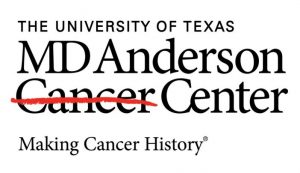 In recent years, I’ve read a number of articles that attribute the rise in B Corps to organizations’ desire to be seen as interested in both shareholder and stakeholder success.
In recent years, I’ve read a number of articles that attribute the rise in B Corps to organizations’ desire to be seen as interested in both shareholder and stakeholder success.
A Benefit Corporation or B Corp is a type of for-profit corporate entity authorized by 33 U.S. states and the District of Columbia that includes positive impact on society, workers, the community, and the environment in addition to profit as its legally defined goals. B Corps differ from traditional C Corps in purpose, accountability, and transparency (reflected in compulsory annual benefit reports that are required of B Corps), but not in taxation. Many B Corp leaders prioritize societal and environmental agendas that hone organizational purpose.
As impressive as many of these organizations (e.g., Ben & Jerry’s, Patagonia, Warby Parker, Bombas, etc.) are, you don’t have to be a B Corp to have a purpose. Any organization—or even a division, location, or single department within an organization—can identify a purpose and infuse a cult-like enthusiasm among its staff for the pursuit of that purpose.
Most organizations have a published mission statement that offers clues about their values, purpose, customers, and aspirational goal. As an example, MD Anderson Cancer Center’smission statement reads: “To eliminate cancer in Texas, the nation, and the world through outstanding programs that integrate patient care, research and prevention, and through education for undergraduate and graduate students, trainees, professionals, employees and the public.”
Within that mission statement, we can identify each of the following:
Values: We value caring, integrity, and discovery
Purpose: To make landmark advances in cancer research
Customers: Patients, patients’ families, health care professionals, students, researchers/academics
Goal: Ridding the world of the scourge that is cancer
If I managed employees at MD Anderson Cancer Center I would ensure, in addition to the technical knowledge and skills required of their positions, that all staff members were fluent in job purpose; their highest priority at work, which is to make landmark advances in cancer research. And, yes, this purpose applies to everyone—whether or not they have been to medical school or work in a lab coat. While it may appear obvious that a researcher or physician’s job role is directly linked to the hospital’s purpose, you might ask how it relates to an orderly’s job role. Just think about the critical importance of conducting research and treating patients in a germ-free environment. (Although, as it turns out, there’s no such thing as a “germ-free” environment, as bacteria and pathogens will always be present.)
Even so, it’s vital that members of a hospital’s custodial staff recognize the disproportionate contribution they make toward ensuring a hospital environment that is as germ-free as possible. This awareness may influence an orderly’s personal decision (voluntary) to adhere to documented protocol and standards for proper cleaning methods (mandatory), to self-supervise their work by double-checking labels to ensure they are using the proper cleaning solutions, and to pay special attention to detail when wiping down surfaces.
Every orderly, if stopped in the hallway and asked, “What is our purpose at MD Anderson Cancer Center?” should be prepared to respond, “To make landmark advances in cancer research.” And when asked how they contribute to this purpose, there should be absolute clarity about how their conscientious approach to cleaning contributes to a safe environment for patients to heal and physicians and researchers to make landmark advances in cancer research in order to rid the world of the scourge that is cancer—ultimately, making cancer history!



